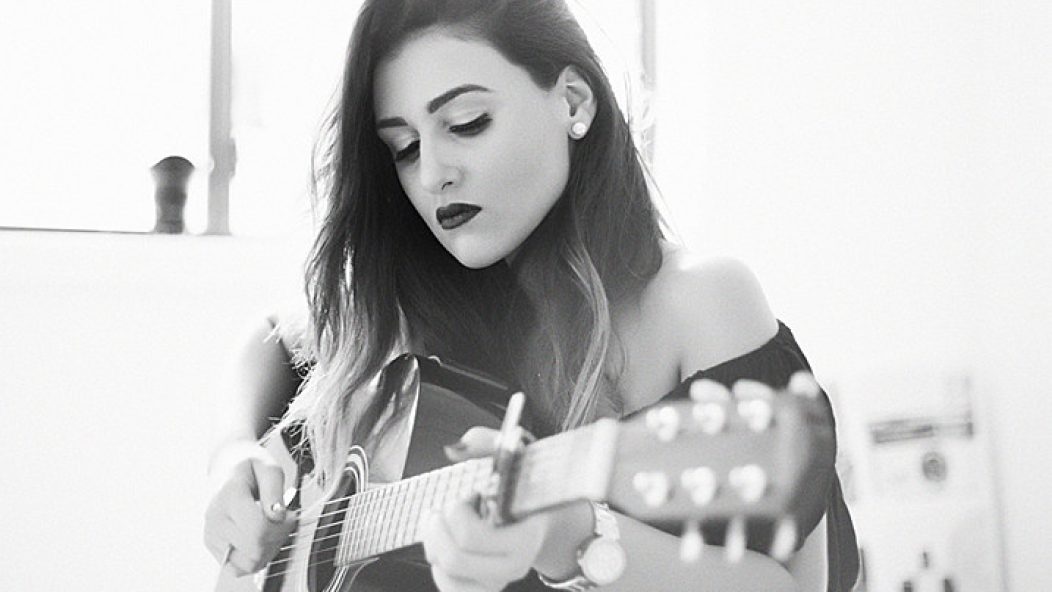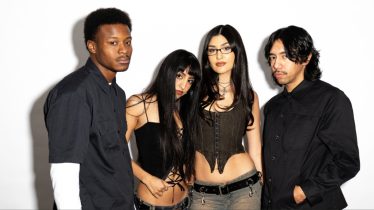
Op-Ed: We're not listening to women in music—and that's a huge problem
“How does it feel to be a woman eating a sandwich? How does it feel to be a woman walking up the stairs?”
Those are the kinds of questions Savages’ Jehnny Beth likened to “How does it feel to be a woman in music?”
And generally, she’s not wrong—music is music; to play guitar as a man is to play guitar as a woman and to sing into a microphone as a man is to sing into a microphone as a woman, and so on and so forth.
But to play a stage at a music festival as a woman, flanked by bands filled with men, has to be different somehow.
Against The Current was the sole act featuring a woman on the initial Reading & Leeds lineup announcement, making frontwoman Chrissy Costanza one woman among 57 men. She spoke to AP regarding the massive gender divide in the British festival.
“Holy shit, I am the only girl. That’s it—it’s just me…Wow, that’s actually really infuriating,” she realized.
Even Costanza didn’t notice the disparity until multiple news outlets picked up the story.
Now try to think of every band in the same scene that doesn’t have a single woman. Got all day?
Paramore, another female-fronted band, have been in that position more than once. Hayley Williams has been a scene game-changer for the better part of a decade, not to mention a personal idol: To me, and to millions of fans, she has been our female representation. She taught me that there is a place for women in music, and it’s a powerful one at that. With Paramore at the helm of pop punk’s biggest hitters, we’ll be alright.
But will we? Pressed for other bands with female members in our scene, there are a few that immediately come to mind—PVRIS, Tonight Alive, the Summer Set, New Years Day, Hey Violet, Code Orange, Candy Hearts, etc.—but then the well starts to run dry. Now try to think of every band in the same scene that doesn’t have a single woman. Got all day?
Women are over half of the planet’s population, but only a tiny fraction of the biggest names in the scene—so where are the women? You couldn’t blame someone for jumping to the conclusion that women just aren’t as good at music as an explanation for why they’re missing. The consequences of letting that myth be perpetuated, however, spell out a devastating future where women are slowly pushed further and further out to the periphery.
Girls are playing music. A 2008 study found that in American schools, girls score higher in music than boys. But somewhere along the way, they learn that it’s not worth it to keep creating, and it’s no secret where that message is coming from. The women are there, but no one is listening.
There’s an ideal world we imagine for women in music, and Costanza described it to AP: “I want it to be a non-issue. I want this to be something that [isn't] even spoken about because it's the norm. Being a girl in a band is a normal thing, it's not something that you have to worry about.”
Los Angeles “girl band” Bleached is launching a zine this March called “Can You Deal?” featuring Hayley Williams, Julien Baker and others that speaks to Costanza's point. Here’s what Bleached member Jennifer Clavin had to say about it:
“To this day, I am still fielding interview questions that have more to do with my gender than with the art I am creating. Somehow the conversation usually derails into some variation of the following question: “What is it like to be a girl in a rock band?” And the ensuing story will define us based on our sex. Why is gender pointed out in nearly all coverage of our band? Labeling me as a woman in a band just puts me in a box, and doesn’t allow everything else I am to be seen and heard. It’s 2017, Can You Deal with women playing rock ’n’ roll yet?”
I can only imagine how frustrating it is to constantly be questioned about your gender, but female musicians, I am imploring you to tell us.
And the truth is, I don’t think society as a whole can deal just yet. I do think, though, that we can make them deal, and the best way to do that is to teach. I can only imagine how frustrating it is to constantly be questioned about your gender, but female musicians, I am imploring you to tell us.
Tell us exactly what it’s like to be a woman in music—tell us exactly how wonderful it is, but also exactly what hurts. Don’t let music fans believe that everything is just fine, because it’s not.
It’s a tough road from virtually all-male lineups to gender equality as a non-issue. And as women, staying quiet might be the worst way to do it.
The idea of gender being a non-issue has been established as the norm.
When we act like the root of the problem isn’t there, we let comments like these happen (all found in the comments section of AP stories):
“Non-issue here. There are simply more all male bands than bands with females. Start more girl bands. This isn’t inequality.”
“There might not be an even split but would you rather go to a music festival with good acts or with an equal amount of performers of each gender?”
These are not in the minority—these are the top comments on their respective stories. The idea of gender being a non-issue has been established as the norm.
Women are internalizing this silence under duress, making them believe that their denigrating and condescending treatment is the norm. It might be the reason that Costanza didn’t initially realize she was the only woman on the lineup. And psychological evidence shows that the power of that suggestion is a self-fulfilling prophecy—if young female musicians truly believe that they are rightfully less represented in the music industry, they will paint themselves into that role.
The catalyst for a change that makes people listen to women lies with female musicians speaking up about their experiences, the music industry and of course, the fans.
Amplifying female voices starts with the industry elite.
Why would girls want to start bands if festival lineups and record label rosters show that their chances of making it are fractional? Why would they write original music if the media makes it seem like there can only be a finite number of women in the scene?
Amplifying female voices starts with the industry elite. People in power have got to put women on lineups and label rosters, and writers (myself included) have to start publishing more stories on female acts. Otherwise, how are listeners meant to find them?
We as fans are an unbelievably powerful force. We are the sole influence of an artist’s success. We need to demand better from festival bookers, record labels and the media, and we need to show that we do care about female artists by buying their music, merch and concert tickets.
On being gay, PVRIS’ Lynn Gunn said, “I think it's something that needs to be shared publicly. I think a lot of people are trying to accept themselves and come to terms with it because it's still a pretty big thing right now. I never had someone to look up to and be like, 'Oh, that person is okay and they're gay.’ If I can be that for someone, then it's why I'm open about it.”
The same goes for holding oneself up as a woman in music. It’s hard to toe the line between loudly wearing your identity in the name of representation, versus just letting it quietly exist. Because why should it matter, anyway? But it does matter, perhaps most importantly to those girls with dreams of being in bands one day. They need proof that it’s possible.
Limiting oppressed populations to the bare minimum of representation is not the first step to liberation—it’s oppression undercover.
Just like Costanza, I want women in music to be the norm. We’re not going to get there by pretending there’s no problem. I dream of “female-fronted” not being used as a label so often that it gets confused for a genre. I dream of a time when asking what it’s like to be a female in music is as pointless a question as what it’s like to be a female eating a sandwich.
But to get there, we need to ask for more. Hayley Williams as the single representative for women is not enough; Laura Jane Grace as the single representative for trans folk is not enough. And don’t get me started on representation for people of color in the scene.
Limiting oppressed populations to the bare minimum of representation is not the first step to liberation—it’s oppression undercover. Women, especially women of color and trans women, deserve so much better. Any woman can be a musician, and a festival headliner at that. They have to speak up, and more importantly, we need to listen.







